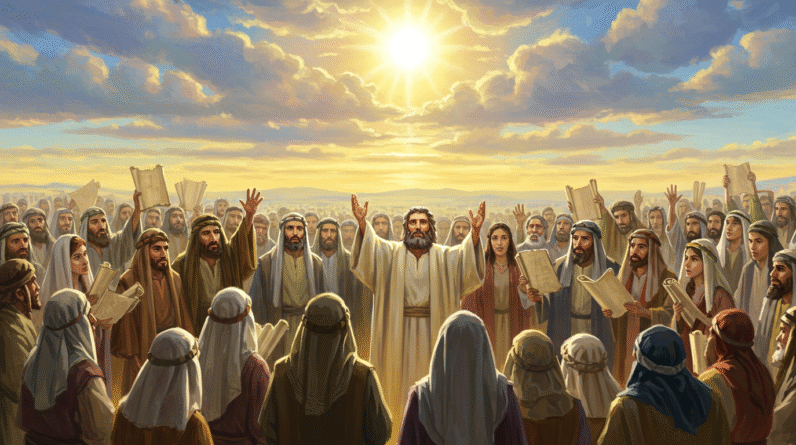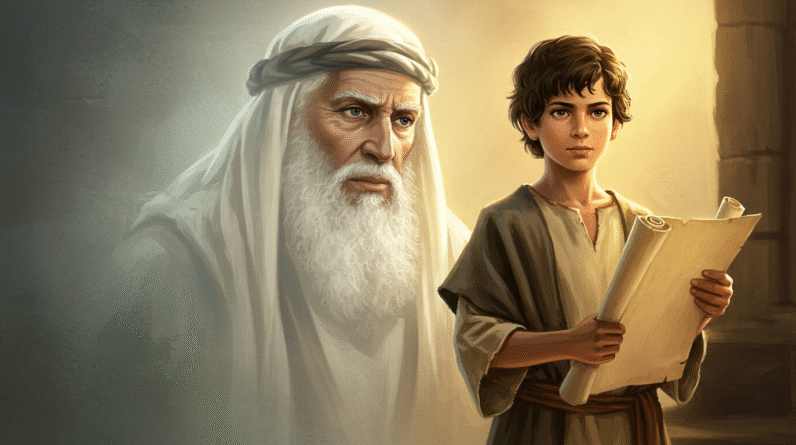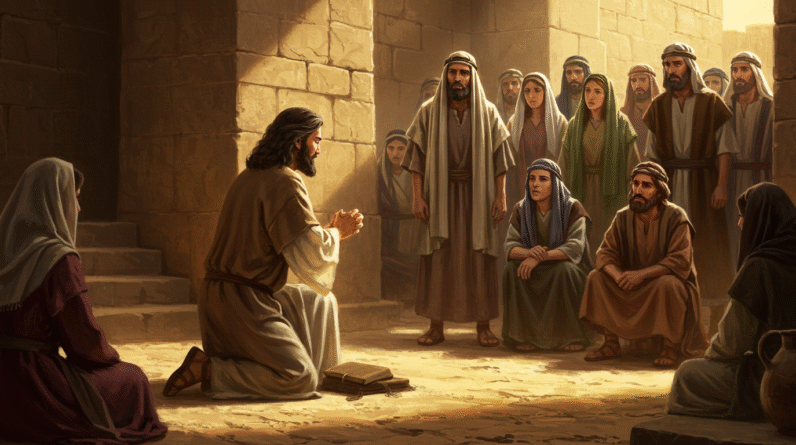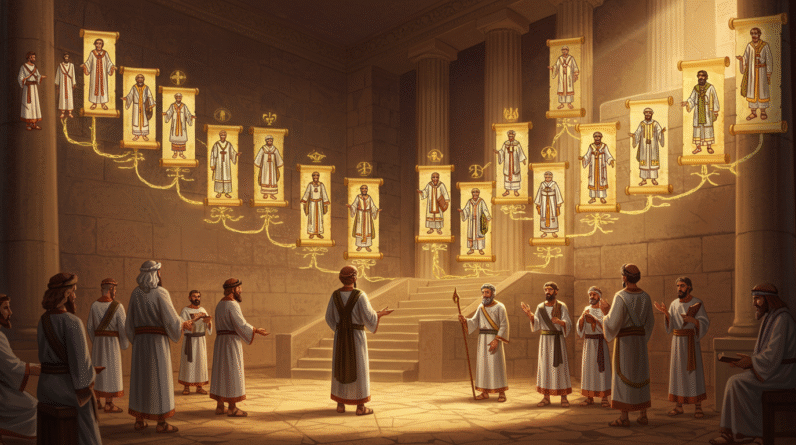How God Set Aaron Apart for the Priesthood
Hey there! Today, we’re diving into an intriguing biblical narrative—how God chose Aaron to be set apart for the priesthood. If you’re curious about divine callings and leadership in biblical times, stick around. So grab a cup of coffee, and let’s explore together how this ancient story unfolds.
The Call of Aaron
You might be wondering, “Why Aaron?” Well, the story of Aaron’s divine selection is pretty captivating. It’s not just about rituals and religious duties; it’s about identity, purpose, and a family’s pivotal role in shaping spiritual communities. God chose Aaron, along with his descendants, to take charge of the priestly role, which was no small calling. Remember, being a priest back in those days was all about leading worship, making sacrifices, and standing as a mediator between God and the people.
Biblically, the journey kicks off in the Book of Exodus, where Aaron is first introduced as the brother of Moses. When God spoke to Moses at the burning bush, outlining the monumental task of liberating the Israelites from Egypt, Moses, concerned about his speaking abilities, questioned if he was the right choice. God, in His wisdom, had already thought this through and chose Aaron to be the spokesperson. You can see this in Exodus 4:14-16, where God reassures Moses by emphasizing Aaron’s role as his eloquent partner.
Anointing Aaron – A Symbol of Sacredness
Once the Israelites were free and journeying through the wilderness, God outlined the guidelines for worship and community in the tabernacle. This was the time when Aaron and his sons were officially set apart to serve as priests. The anointing ceremony was a crucial moment, marking them as clean, sanctified, and dedicated to God’s service. If you peek into Leviticus 8, you’ll find the elaborate details: it was more than just a designation—it was sacred theater.
Anointing involved sacred oil, specific garments, and an intense ritual that symbolized not only Aaron’s purification but the beginning of a sacred service. When God chose Aaron, it wasn’t a temporary position; it was a lifetime dedication. The anointing oil represented the Holy Spirit, a divine empowerment marking Aaron and his descendants as holy.
Aaron’s Authority and Responsibilities
Once Aaron was anointed, his responsibilities extended to maintaining the spiritual purity of the community. Not only did he perform sacrifices, but he was also responsible for teaching God’s laws and ensuring they were kept. Imagine the weight of that task, especially in a time when societal laws were essentially divine edicts.
Aaron’s role was multifaceted. He acted as an intermediary during significant events, like the Day of Atonement, a crucial time when he would enter the Holy of Holies to make atonement for all the people. This was a high-stakes spiritual task because if not done correctly, it could mean facing severe consequences. You can see the details of this sacred service in Leviticus 16.
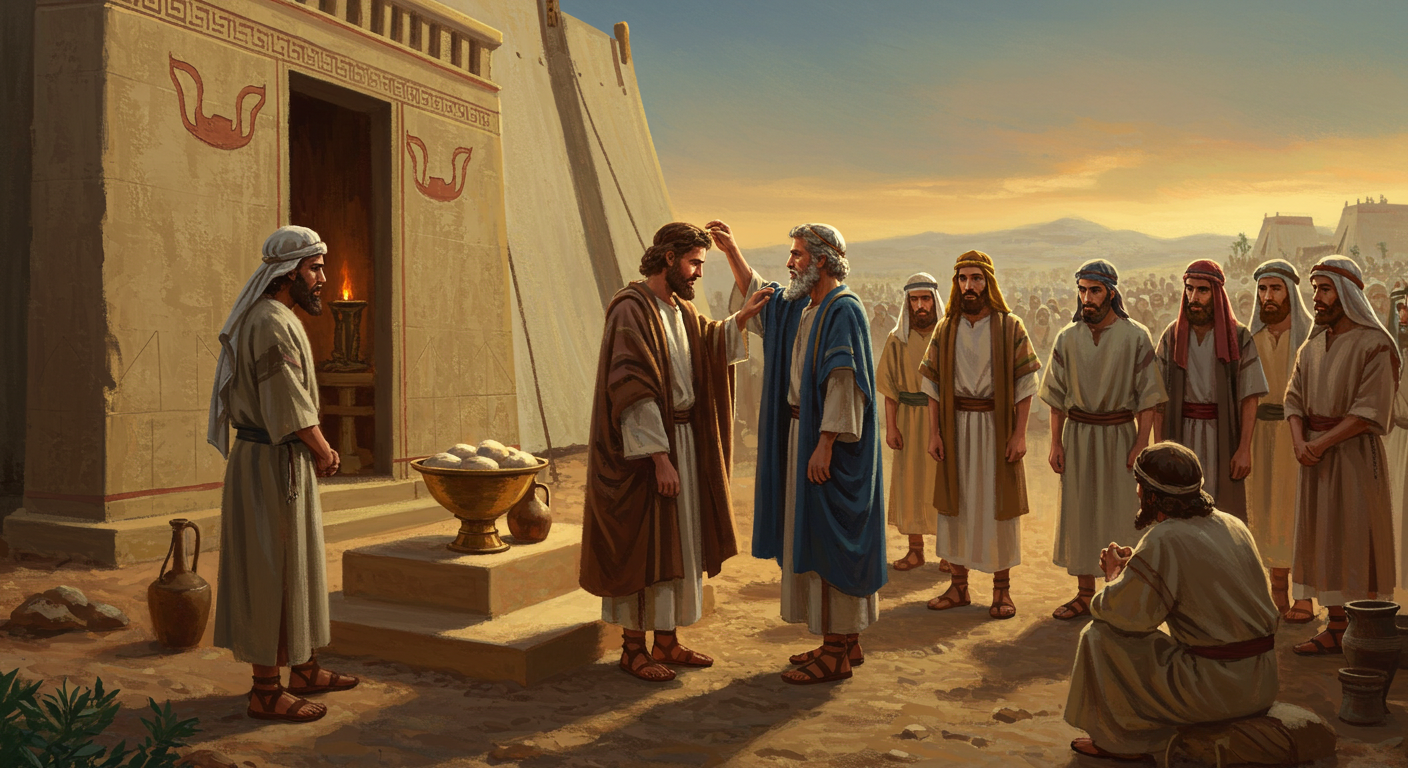
The Priesthood Line – Aaron’s Descendants
What makes Aaron’s story even more captivating is that this choice wasn’t limited to him alone. God’s choice transcended generations, affirming the priesthood of his sons and their descendants. It was like a family business, but instead of trading goods, they traded in spiritual currency. Moreover, being set apart wasn’t just about rituals; it was a perpetual reminder of God’s faithfulness and the covenant between God and Israel.
Take a look at Numbers 18:1-7, which elucidates the privileges and responsibilities of Aaron’s lineage. When God chose Aaron, it set a precedent for how spiritual leadership and heritage were valued in ancient Jewish culture, offering insights into how faith and family bonds intersected.
Aaron’s Legacy and Challenges
The life of Aaron wasn’t all smooth sailing; there were challenges too. Remember the incident with the golden calf in Exodus 32? While Moses was on Mount Sinai receiving the Ten Commandments, Aaron faced pressure from the people and crafted an idol for them. It was a dramatic moment showcasing human frailty and the burden of leadership. Despite this, God reaffirmed Aaron’s priesthood, emphasizing forgiveness and second chances.
Aaron’s story also underlines the importance of accountability and reconciliation. The times Aaron faltered serve as a reminder that leaders, no matter how divinely chosen, are still human and reliant on God’s grace. His journey was one of growth, learning, and proving that when God chose Aaron, He chose not just a leader but a human capable of learning from his mistakes.
Conclusion
So, what does this all mean for you? Well, understanding Aaron’s divine selection and legacy enriches your appreciation of the biblical narrative and highlights the timeless nature of God’s calling, not just in ancient times but perhaps in your life too.
Explore More
For further reading and encouragement, check out these posts:
👉 7 Bible Verses About Faith in Hard Times
👉 Job’s Faith: What We Can Learn From His Trials
👉 How To Trust God When Everything Falls Apart
👉 Why God Allows Suffering – A Biblical Perspective
👉 Faith Over Fear: How To Stand Strong In Uncertain Seasons
👉 How To Encourage Someone Struggling With Their Faith
👉 5 Prayers for Strength When You’re Feeling Weak

📘 Jesus and the Woman Caught in Adultery – Grace and Mercy Over Judgement
A powerful retelling of John 8:1-11. This book brings to life the depth of forgiveness, mercy, and God’s unwavering love.
👉 Check it now on Amazon
As a ClickBank Affiliate, I earn from qualifying purchases.
Acknowledgment: All Bible verses referenced in this article were accessed via Bible Gateway (or Bible Hub).
“Want to explore more? Check out our latest post on Why Jesus? and discover the life-changing truth of the Gospel!”



